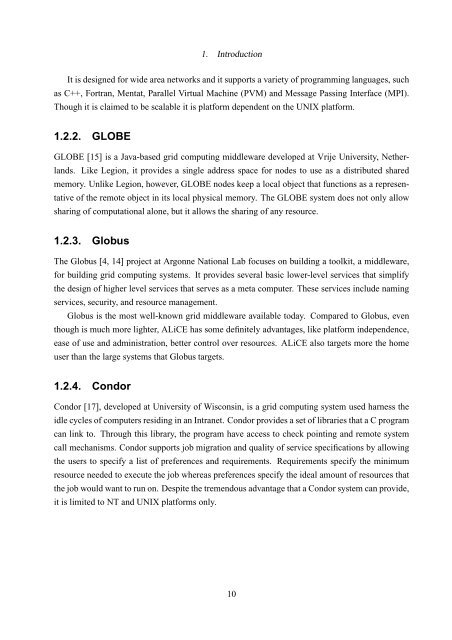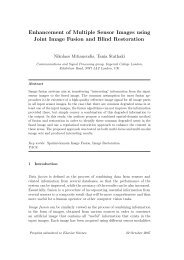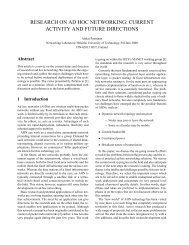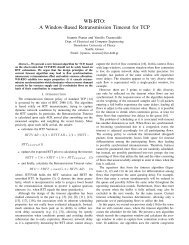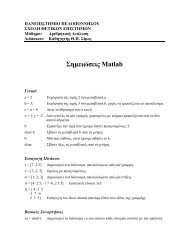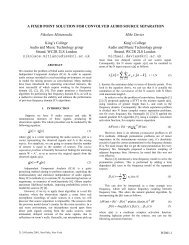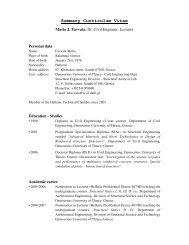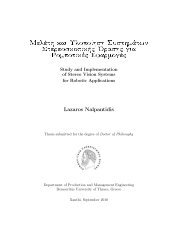a Grid Computing System - Utopia
a Grid Computing System - Utopia
a Grid Computing System - Utopia
You also want an ePaper? Increase the reach of your titles
YUMPU automatically turns print PDFs into web optimized ePapers that Google loves.
1. Introduction<br />
It is designed for wide area networks and it supports a variety of programming languages, such<br />
as C++, Fortran, Mentat, Parallel Virtual Machine (PVM) and Message Passing Interface (MPI).<br />
Though it is claimed to be scalable it is platform dependent on the UNIX platform.<br />
1.2.2. GLOBE<br />
GLOBE [15] is a Java-based grid computing middleware developed at Vrije University, Nether-<br />
lands. Like Legion, it provides a single address space for nodes to use as a distributed shared<br />
memory. Unlike Legion, however, GLOBE nodes keep a local object that functions as a represen-<br />
tative of the remote object in its local physical memory. The GLOBE system does not only allow<br />
sharing of computational alone, but it allows the sharing of any resource.<br />
1.2.3. Globus<br />
The Globus [4, 14] project at Argonne National Lab focuses on building a toolkit, a middleware,<br />
for building grid computing systems. It provides several basic lower-level services that simplify<br />
the design of higher level services that serves as a meta computer. These services include naming<br />
services, security, and resource management.<br />
Globus is the most well-known grid middleware available today. Compared to Globus, even<br />
though is much more lighter, ALiCE has some definitely advantages, like platform independence,<br />
ease of use and administration, better control over resources. ALiCE also targets more the home<br />
user than the large systems that Globus targets.<br />
1.2.4. Condor<br />
Condor [17], developed at University of Wisconsin, is a grid computing system used harness the<br />
idle cycles of computers residing in an Intranet. Condor provides a set of libraries that a C program<br />
can link to. Through this library, the program have access to check pointing and remote system<br />
call mechanisms. Condor supports job migration and quality of service specifications by allowing<br />
the users to specify a list of preferences and requirements. Requirements specify the minimum<br />
resource needed to execute the job whereas preferences specify the ideal amount of resources that<br />
the job would want to run on. Despite the tremendous advantage that a Condor system can provide,<br />
it is limited to NT and UNIX platforms only.<br />
10


